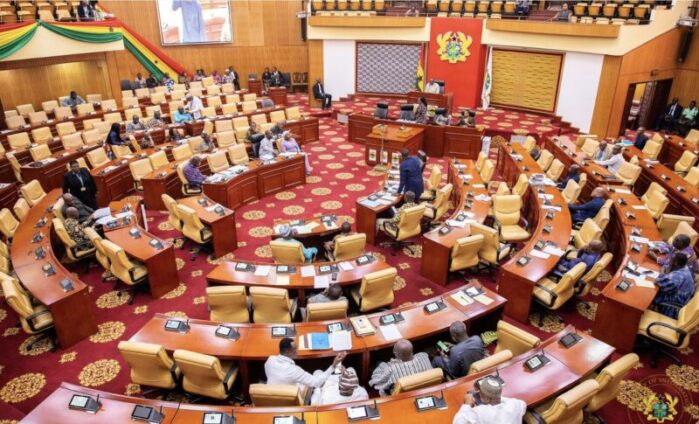Of Bats, Cry Babies, and the Saga in Ghana’s Parliament
Thursday, 28 November 2024 | Ghana

My people have an old tale about the bat—a creature said to urinate heavenwards. While unverified, the story holds profound lessons. The bat, they say, makes this choice deliberately, not by accident or inevitability. Its decision to urinate on God is futile, as gravity ensures the bat itself bears the consequences of this misguided effort.
This fable aptly mirrors certain political events in Ghana today. When the Speaker of Parliament made a ruling based on established precedent set by his predecessor, it was met with extraordinary backlash. The same precedent was previously accepted without contention. However, when the current Speaker applied it, tensions escalated to fever pitch, leading to the case being hauled to the Supreme Court.
The Supreme Court, revered as the ultimate arbiter, delivered a judgment hailed by the plaintiff as a victory for democracy. Yet, the aftermath has been far from celebratory. The so-called "victory" has turned into a nightmare for its architect, akin to the plight of Sisyphus, eternally pushing a boulder uphill.
After labeling the Speaker’s actions treasonous and demanding compliance with the court's judgment, the plaintiff now pleads for the Speaker to use discretion to recall Parliament. Ironically, the Speaker, previously vilified, is now being "respected" as the authority to resolve the issue. This shift reveals an inconsistency: if the Supreme Court was the chosen avenue to resolve parliamentary matters, why the sudden appeal to the Speaker's discretion?
Even more perplexing is the urgency claimed for parliamentary business. No specific or irretrievable issue has been presented, yet the Speaker is blamed for Parliament’s inability to sit. Meanwhile, the plaintiff conveniently ignores how their own members caused adjournments by denying Parliament the necessary quorum.
This behavior parallels that of a cry baby—insistent on having their way regardless of the cost to others. The Speaker must exercise fairness to all members, many of whom are engaged in critical constituency work. The plaintiff disregards this, pressing for recall at the expense of other lawmakers.
Beyond parliamentary proceedings, the cry baby narrative extends to court actions. The plaintiff claims an exclusive right to represent the Speaker in court yet protests when the Speaker appoints alternative legal counsel. Even when their request is granted, they find fresh grounds to cry foul, calling for sanctions against the Speaker’s lawyer without a legal basis.
The irony deepens when the plaintiff criticizes judgments while demanding punishment for other lawyers who do the same. This selective outrage undermines the fairness they claim to champion.
Cry babies often get their way when indulged by lenient "parents." However, this time, they must be told "NO." A firm response is needed to halt the cycle of inconsistency, misplaced priorities, and self-serving demands. The nation deserves leadership and maturity, not a relentless spiral of political theatrics.
This fable aptly mirrors certain political events in Ghana today. When the Speaker of Parliament made a ruling based on established precedent set by his predecessor, it was met with extraordinary backlash. The same precedent was previously accepted without contention. However, when the current Speaker applied it, tensions escalated to fever pitch, leading to the case being hauled to the Supreme Court.
The Supreme Court, revered as the ultimate arbiter, delivered a judgment hailed by the plaintiff as a victory for democracy. Yet, the aftermath has been far from celebratory. The so-called "victory" has turned into a nightmare for its architect, akin to the plight of Sisyphus, eternally pushing a boulder uphill.
After labeling the Speaker’s actions treasonous and demanding compliance with the court's judgment, the plaintiff now pleads for the Speaker to use discretion to recall Parliament. Ironically, the Speaker, previously vilified, is now being "respected" as the authority to resolve the issue. This shift reveals an inconsistency: if the Supreme Court was the chosen avenue to resolve parliamentary matters, why the sudden appeal to the Speaker's discretion?
Even more perplexing is the urgency claimed for parliamentary business. No specific or irretrievable issue has been presented, yet the Speaker is blamed for Parliament’s inability to sit. Meanwhile, the plaintiff conveniently ignores how their own members caused adjournments by denying Parliament the necessary quorum.
This behavior parallels that of a cry baby—insistent on having their way regardless of the cost to others. The Speaker must exercise fairness to all members, many of whom are engaged in critical constituency work. The plaintiff disregards this, pressing for recall at the expense of other lawmakers.
Beyond parliamentary proceedings, the cry baby narrative extends to court actions. The plaintiff claims an exclusive right to represent the Speaker in court yet protests when the Speaker appoints alternative legal counsel. Even when their request is granted, they find fresh grounds to cry foul, calling for sanctions against the Speaker’s lawyer without a legal basis.
The irony deepens when the plaintiff criticizes judgments while demanding punishment for other lawyers who do the same. This selective outrage undermines the fairness they claim to champion.
Cry babies often get their way when indulged by lenient "parents." However, this time, they must be told "NO." A firm response is needed to halt the cycle of inconsistency, misplaced priorities, and self-serving demands. The nation deserves leadership and maturity, not a relentless spiral of political theatrics.


 How to resolve AdBlock issue?
How to resolve AdBlock issue?